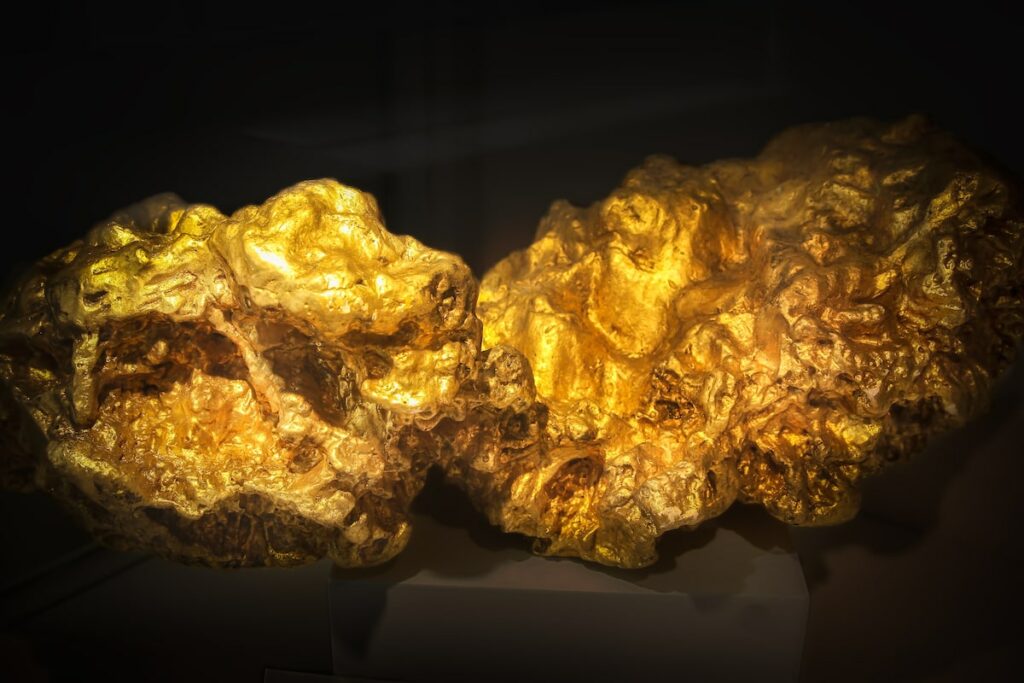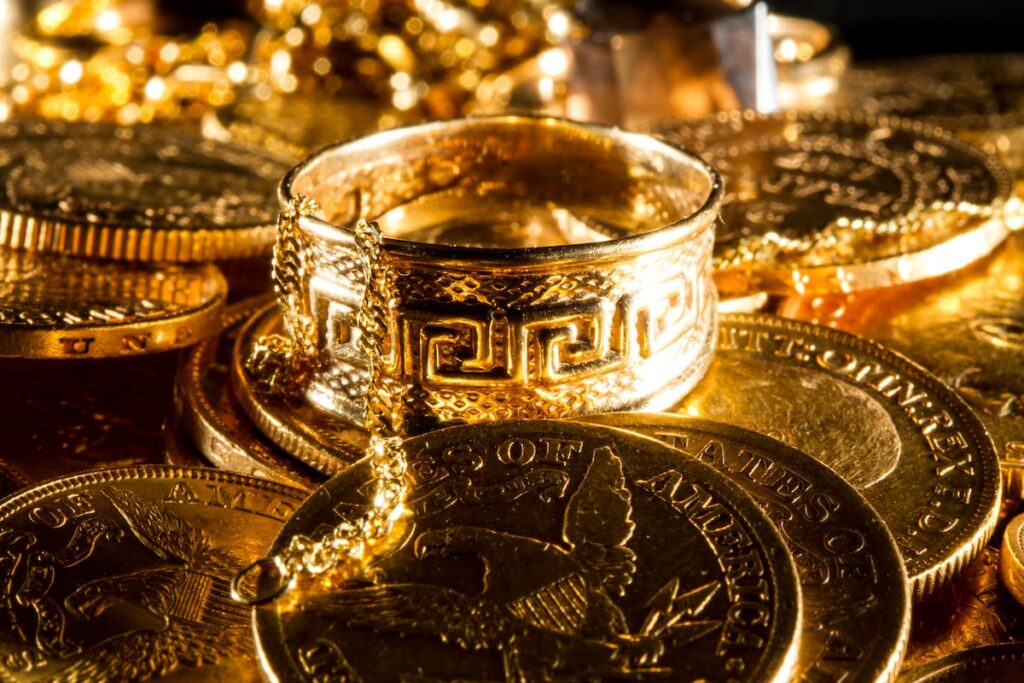Gold is a highly attractive metal for investors, holding and often increasing in value over time.
You might wonder if it’s possible to have gold produced or transmuted by any means in the modern age.
You cannot make gold — not in a practical sense, at least. It can only be found by mining it, which is part of the reason it is so valuable. Gold can be created in a lab under specific conditions, but it is difficult and costly to create even tiny amounts of it.
Centuries ago, alchemists believed that gold could be created through a process called transmutation and sought to change more common materials like lead into the more desirable and valuable yellow metal.
Remember that alchemy used to be considered science back then; now, it’s almost on the same level as superstitions.
Modern scientists have had a marginal degree of success in this endeavor, but with some major caveats — which you’ll know more about below.
I’ll dive deeper into why it’s difficult (if not impossible) to create gold from scratch and where you can go find gold should you wish to do so.
Why Can’t We Make Gold?
We cannot make gold because, as a heavy element, it was created through the high energy released by dying stars.
It is believed that all the gold found on earth was created through stellar explosions that occurred before the solar system formed.
Gold is an element (denoted by the symbol “Au”) and, as such, cannot be broken down or created by any conventional means.
By nature, elements are the smallest building blocks of matter and contain a set number of protons which give them their atomic number.
Essentially, to make gold, you have to crash particles together under conditions comparable to those created by a star as it explodes.
The specific process that creates gold is known as the r-process.
Why Can’t Gold Be Synthesized, Manufactured (in a Lab)
Gold can theoretically be synthesized or manufactured in a lab, but it requires the use of nuclear reactors or particle accelerators.
Scientists have successfully synthesized gold by blasting mercury with neutrons but were only able to create minuscule amounts of it.
The goal of alchemy was to transmute lead into gold. Achieving this would essentially translate to infinite wealth for whoever knew how to do so.
Had alchemy succeeded, it would have devalued gold and destroyed economies based on the gold standard.
As a result, alchemy was deemed illegal and become shrouded in esotericism and secrecy.
It’s worth noting that the gold isotopes manufactured were also radioactive, making them unsafe to handle.
How Gold Can Be Manufactured in a Lab
Gold isn’t necessarily impossible to make, but it may as well be.
This is because manufacturing even the tiniest amount of gold requires highly specialized equipment that isn’t accessible to the average person, not to mention the specific knowledge and expertise required for synthesizing the precious metal.
Glenn Seaborg, one of the most prolific scientists in modern history, was able to synthesize several thousand atoms of gold by blasting particle beams at elemental bismuth.
According to Scientific American, the accelerator used ran for roughly 24 hours and used $5000 worth of energy each hour (source).
Considering the fact that 1 ounce (28 grams) of gold contains about 1.18×10^26 (118,000,000,000,000,000,000,000,000) atoms, it would cost about $2.03×10^27 ($2,030,000,000,000,000,000,000,000,000) to create a single ounce of gold at the time.
To put this in perspective, gold costs about $560 per ounce.
Is Gold Difficult To Mine?
Gold mining is extremely difficult since most significant deposits are found deep underground in ore veins.
Gold mines can go as deep as 4 kilometers (2.5 miles), and to get to it takes significant expertise and effort from a variety of fields like geology and engineering.
It might seem easier to create gold in a lab, but as explained, such an endeavor comes at an absolutely staggering cost.
For this reason, gold mining is a multi-billion dollar industry to this day — which is not to say that gold mining is easy, however.
If gold were easy to mine, it likely wouldn’t be so valuable.
The discovery of gold has historically triggered gold rushes, where many people travel to an area hundreds of miles from home, hoping to make a better life for themselves.
As an example, the South African city of Johannesburg owes its existence to the discovery of gold in the area.
The significance of the discovery is also reflected in the country’s currency, the Rand, which was so named for the Witwatersrand region where the city is located.
Can You Find Gold?
You can find gold to this day. In 2022, for instance, deposits worth an estimated $12.8 trillion were discovered in Uganda.
Gold prospecting and panning also continues to be a recreational activity for many people in the United States, Japan, Australia, and many other places.
When gold prospecting is mentioned, you might think about historical pioneers scouring unknown lands for signs that there might be a gold seam nearby.
However, it’s still possible to discover new sources of gold.
For those hoping to engage in gold prospecting activities, it’s important to observe local laws and regulations around such endeavors.
In most countries, you either need a permit or special permission to engage in gold prospecting, even if you’re doing it as a hobby.
If you were hoping to learn how to make gold, the good news is that it’s theoretically possible, but the cost of doing so far outweighs the potential returns.
For this reason, gold mining continues to be a highly lucrative industry.
If you’re hoping to find gold, you’ll be happy to know that there are still undiscovered sources out there.
Just be sure to stay on the right side of the law, or you could make someone else rich with your discovery — or worse, find yourself in hot water with the authorities.




